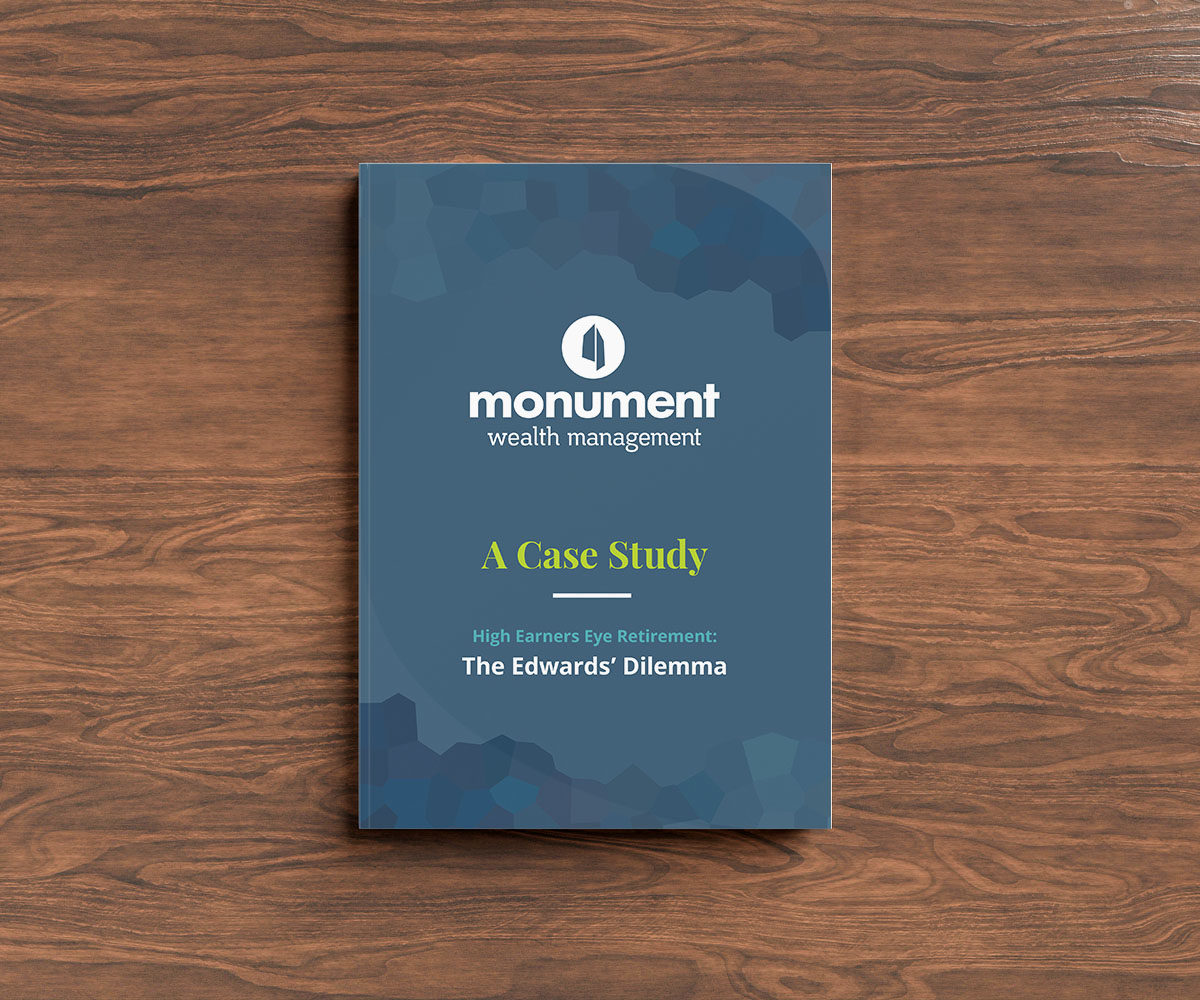Monument Wealth Management Articles
Stacking the Odds in Your Favor: Behavioral Finance 101

Share on your favorite platform, or by email
What Las Vegas Teaches Us About Investing
What a topic! Behavioral Finance has become a field unto itself. The study of how the mind and the market meet has spawned Nobel Laureates, quantitative hedge funds, and an army of spreadsheet warriors running untold sums of money on Wall Street.
For our inspiration today, we will quote the famed investment guru and former heavyweight champion, Mike Tyson. “Everyone has a plan until they get punched in the face.”
We find the topic of behavioral finance to be at the heart of why we exist as a firm. Investing is hard. However, when you add the complex and unpredictable nature of human beings, investing becomes harder still. After all, our own behavior determines our success more than any other factor, in every area of our lives—including our wealth.
Life is complex. There are lots of moving parts and it takes a lot more than just tallying up numbers to figure it out. Investing is not solely a spreadsheet-driven endeavor. Investors vary greatly across a multitude of factors, ranging from their time horizon for accessing their funds, their risk tolerance, their tax status, their social signaling, and countless other reasons why investors transact in the market.
For anyone who has seen the movie “The Hangover,” you’ll know that Mike Tyson lives in Las Vegas. The city is famous because the odds are stacked against you. And anyone who is overly emotional about investing probably has the same odds of success as going to the casino and playing the slots. Emotional investing often leads to many pitfalls, including but not limited to: over-diversification (which can lead to suboptimal performance or style drift), overtrading, losing patience, or worse still, becoming a Reddit trader. Said another way: don’t play the slots…
Nah, I don’t play slots. Roulette is my game.
Those looking for excitement in both investing and casinos often want some semblance of control. Unlike slots, playing roulette can be somewhat less random. Seasoned roulette aficionados don’t play a single number. They often spread their bets.
For instance: when investing, you wouldn’t put all your capital in one stock, which is akin to playing one number. You would diversify. In roulette, players often place chips on a multitude of options ranging from odd/even, black/red, alongside individual numbers or groups of numbers. They diversify across the board. In investing, one component of diversification can mean investing in an index in conjunction with individual securities.
Behavioral Setback: Anchoring Bias
However, Roulette players, like stock pickers, tend to suffer from anchoring bias. Roulette players tend to play specific numbers, combinations, or colors…just as stock pickers will stick to specific sectors and stocks and will routinely average down into losing investments. Both the Casino and Wall Street make money from these tendencies, which are rooted in our behavioral biases.
Forget Roulette, I play Blackjack.
OK! Now we’re getting somewhere. Blackjack has some of the most favorable odds in the casino for the player. In most casino games of Blackjack, the house advantage is approximately 8% percent. The house gets this advantage by merit of the dealer being the last player to act. However, by correctly using a basic strategy, a Blackjack player can diminish the casino’s edge from approximately 8% down to ~0.5%. The house still has an advantage – that is, you can still catch a bad sequence of cards – but it’s been greatly diminished.
Behavioral Setback: Sequence of Returns Risk
In wealth management, we call this “sequence of returns risk.” This risk is real for retirees and emotionally driven investors. If you allow emotions to dominate your decision-making process, then you will either a.) increase your bets during a losing streak (i.e. averaging down), or b.) walk away before you can catch a few favorable cards (i.e. a bull market). Everyone has a plan until they get punched in the face.
Become the Casino
If the odds are stacked against you in a casino, then stop playing games and instead become the casino. Casinos don’t try to make money by going all in on a single game, player, or bet – they play the odds over and over again, slowly and diligently picking up dollar bills in a probabilistic, calibrated and systematic fashion from emotional, uninformed participants. It’s why they comp high rollers everything from rooms to meals and shows…to get them to stay at the casino longer.
Monument Wealth Management has a similar view. We remove emotion from the decision-making process, eschew short-term, news-driven strategies, avoid anchoring bias, manage sequence of returns risk, and protect precious emotional capital by managing money in a rules-based, disciplined, systematic fashion. We know that there is no such thing as possessing 100% perfect information 100% of the time—and instead we distinguish between possibilities and probabilities.
We manage money and build wealth plans by becoming the house – not by betting the house. We let cold, calculating rules guide our decisions to minimize the behavioral pitfalls that make us human. We play the probabilities, put good odds in our favor, and stick with a long-term plan. Our razor-sharp fiduciaries design customized Private Wealth Designs with bespoke portfolios, custom to each client’s big picture. We offer straightforward, unfiltered opinions and advice, not just numbers on paper. And this is what differentiates us from the legions of jargon-heavy factories in the industry.

It’s time to find clarity around your finances and remove the anxiety of the unknown.
Read our case study, “High Earners Eye Retirement,” to see how we helped one of our clients with their wealth planning.
Ready for straightforward, unfiltered opinion and tailored advice for YOUR
questions, not everyone else’s?
IMPORTANT DISCLOSURE INFORMATION
Please remember that past performance is no guarantee of future results. Different types of investments involve varying degrees of risk, and there can be no assurance that the future performance of any specific investment, investment strategy, or product (including the investments and/or investment strategies recommended or undertaken by Monument Capital Management, LLC [“Monument”]), or any non-investment related content, made reference to directly or indirectly in this blog will be profitable, equal any corresponding indicated historical performance level(s), be suitable for your portfolio or individual situation, or prove successful. Due to various factors, including changing market conditions and/or applicable laws, the content may no longer be reflective of current opinions or positions. Moreover, you should not assume that any discussion or information contained in this blog serves as the receipt of, or as a substitute for, personalized investment advice from Monument. To the extent that a reader has any questions regarding the applicability of any specific issue discussed above to his/her individual situation, he/she is encouraged to consult with the professional advisor of his/her choosing. No amount of prior experience or success should be construed that a certain level of results or satisfaction will be achieved if Monument is engaged, or continues to be engaged, to provide investment advisory services. Monument is neither a law firm nor a certified public accounting firm and no portion of the blog content should be construed as legal or accounting advice.
A copy of Monument’s current written disclosure Brochure discussing our advisory services and fees is available for review upon request or at www.monumentwealthmanagement.com/disclosures. Please Note: Monument does not make any representations or warranties as to the accuracy, timeliness, suitability, completeness, or relevance of any information prepared by any unaffiliated third party, whether linked to Monument’s website or blog or incorporated herein, and takes no responsibility for any such content. All such information is provided solely for convenience purposes only and all users thereof should be guided accordingly.
Historical performance results for investment indices, benchmarks, and/or categories have been provided for general informational/comparison purposes only, and generally do not reflect the deduction of transaction and/or custodial charges, the deduction of an investment management fee, nor the impact of taxes, the incurrence of which would have the effect of decreasing historical performance results. It should not be assumed that your Monument account holdings correspond directly to any comparative indices or categories. Please Also Note: (1) performance results do not reflect the impact of taxes; (2) comparative benchmarks/indices may be more or less volatile than your Monument accounts; and, (3) a description of each comparative benchmark/index is available upon request.
Please Remember: If you are a Monument client, please contact Monument, in writing, if there are any changes in your personal/financial situation or investment objectives for the purpose of reviewing/evaluating/revising our previous recommendations and/or services, or if you would like to impose, add, or to modify any reasonable restrictions to our investment advisory services. Unless, and until, you notify us, in writing, to the contrary, we shall continue to provide services as we do currently. Please Also Remember to advise us if you have not been receiving account statements (at least quarterly) from the account custodian.